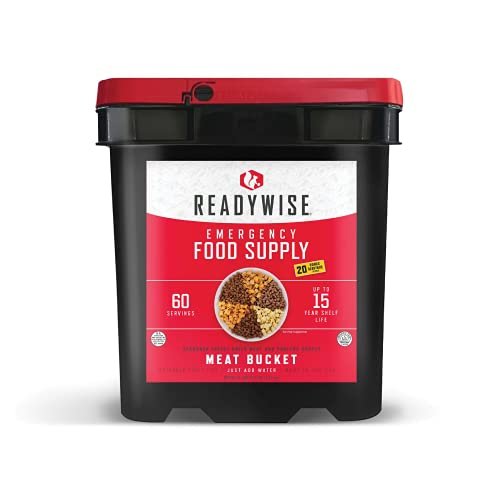Survival Kits in Business Strategy: Adapting to Crisis Like Costco
Published Date: 28 Mar 2025
In today’s unpredictable world, the importance of being prepared for unexpected events has never been more apparent. One recent example of this mindset in action is Costco’s introduction of the ReadyWise Emergency Food Bucket. This product is designed to provide long-lasting food security during emergencies, highlighting a strategy that businesses can also apply to crisis management.
Understanding Costco’s Emergency Food Bucket
Costco’s ReadyWise Emergency Food Bucket contains 150 servings of various meals with an impressive shelf life of up to 25 years. Priced around $100, the bucket includes dishes such as pasta alfredo, teriyaki rice, and apple cinnamon cereal, which require only water to prepare. This product caters to those looking for long-term food security amid potential crises.
The success of this product reflects Costco’s ability to tap into consumer psychology, particularly the fear of uncertainty and the desire for preparedness. In recent years, the world has faced numerous global challenges, from pandemics to geopolitical conflicts, making consumers more conscious of being prepared for emergencies. By recognizing this shift, Costco has positioned itself as a reliable source of practical solutions during unpredictable times.

Business Strategies Inspired by Preparedness
The principles behind Costco’s emergency food bucket can be mirrored in business strategies that focus on crisis readiness. Here are some key takeaways:
- Risk Assessment and Planning: Just as individuals anticipate potential emergencies, businesses must assess risks and develop comprehensive crisis management strategies. This means identifying vulnerabilities and creating plans to minimize impacts. A thorough risk assessment can help companies understand potential threats, whether financial, operational, or reputational.
- Resource Allocation: Investing in resources that support continuity during disruptions is crucial. For companies, this might involve diversifying supply chains, integrating advanced technology, or maintaining financial reserves to withstand unexpected challenges. By allocating resources effectively, businesses ensure they are not caught off guard when crisis strikes.
- Flexibility and Adaptability: Just like the emergency bucket’s long shelf life and easy preparation, businesses should be agile enough to pivot their strategies and adapt to evolving market conditions. Being too rigid can make a company vulnerable when circumstances change suddenly. Adaptability is about being prepared to revise strategies, reallocate resources, and implement new approaches promptly.
- Effective Communication: In times of crisis, clear and consistent communication is vital. Establishing robust communication protocols ensures that both internal teams and external stakeholders stay informed and aligned. Transparency can build trust, especially when dealing with customers and partners who expect timely updates during challenging situations.
The Psychology of Crisis Preparedness in Business
The psychology behind survival kits and crisis preparedness is deeply rooted in human behavior. People are naturally inclined to seek control over uncertainty. Similarly, businesses thrive when they anticipate challenges and proactively mitigate risks. The success of survival products, like Costco’s food bucket, illustrates how addressing fundamental human concerns can create successful business strategies.
Building a Business Survival Kit
To create a resilient business, consider adopting these practical steps:
- Form a Crisis Management Team: Designate a group responsible for identifying risks, creating response plans, and executing strategies during emergencies. This team should include members from various departments to ensure comprehensive coverage of potential issues.
- Regular Training and Drills: Practice crisis simulations regularly to prepare staff and validate the effectiveness of existing plans. Training employees to handle disruptions calmly and efficiently can significantly reduce panic during real events.
- Monitor and Update Plans: Continuously evaluate the business landscape for new threats and update crisis strategies as needed. A flexible approach to planning allows businesses to address both anticipated and unforeseen challenges.
- Build Strong Networks: Establishing partnerships and connections within the industry can provide support during crises. Collaborating with suppliers, competitors, and community organizations can enhance collective resilience.
- Leverage Technology: Utilize digital tools to monitor risks, communicate quickly, and make data-driven decisions. Whether it’s cloud solutions for remote work or social media monitoring for public sentiment, technology plays a pivotal role in modern crisis management.
But Why a Survival Kit? What Is Going On in Europe?
Recent developments in Europe have sparked discussions about crisis preparedness, as authorities have urged citizens to consider equipping themselves with survival kits in case of emergencies. This heightened awareness follows geopolitical tensions and concerns about potential large-scale conflicts, prompting people to think about long-term food security and self-sufficiency.
The European Union has advised citizens to prepare for potential crises by keeping essential items on hand, including non-perishable food, water, and basic medical supplies. In this context, Costco’s survival food bucket has gained significant attention, as it resonates with the growing public sentiment of being prepared for unforeseen challenges.
In the business world, this shift towards proactive readiness underscores the importance of having contingency plans and resources to navigate unexpected situations. By drawing parallels between personal preparedness and business strategies, companies can build resilience and thrive, even in uncertain times.
Conclusion
Survival kits, whether in a literal or metaphorical sense, symbolize readiness and security. For businesses, adopting a survival mindset means being prepared for the unpredictable and fostering resilience. The lesson from Costco’s approach is clear: understanding consumer needs, anticipating changes, and offering practical solutions can not only secure business continuity but also strengthen customer trust. By applying similar principles, companies can weather crises and emerge stronger, just as Costco has successfully aligned its strategy with the growing desire for preparedness.
Maximize your value and knowledge with our 5 Reports-in-1 Bundle - over 40% off!
Our analysts are ready to help you immediately.
